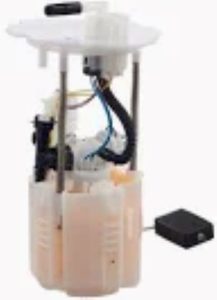Understood! Revised Version (Including first word lower case on "Fuel Pump":
Fuel pumps are instrumental in providing the engine with a regular and efficient supply of fuel, which is necessary to support acceleration. Fuel pumps supply gasoline to the engine as pressure fuel, usually measured in PSI (pounds per square inch) and ranging from 30psi to 80 psi depending on the requirements of each engine. Reduced fuel pressure (because of a weak or failing pump) can lead to losses in acceleration as well especially under high-demand conditions like that needed for rapid take-offs and heavy payloads. The right pressure ensures the fuel injectors can deliver just the right amount of air/fuel mix, which directly affects how responsive acceleration will be.
Fuel pumps additionally contribute to the acceleration cycle; because of it, they determine how fast or slow the fuel reaches its engine. An example of this is high performance fuel pumps, that have the ability to deliver up 500 liters per hour are compatible with especially powerful motors. Fuel pump upgrades are common on competitive motorsports, where every fraction of a second counts, especially in the acceleration. Some of engines with high horsepower are not made to perform at their peak rates since fuel will never flow adequately and this is where a quality pump comes in.

One final consideration is the weird two fuel pump types that have nothing to do with acceleration. While older vehicles used mechanical fuel pumps, these work fine for driving normally but not as good during hard acceleration because their flow rate is limited. The original electric fuel pump designed as a high-speed operation unit can work out the requirement of sufficient fine control system to improve acceleration capabilities from an engineering perspective, even though it is capable flow under vacuum. For example, electric fuel pumps can adapt by pumping more as RPMs increase to accommodate smoother and quicker acceleration.
As fuel pump efficiency goes down, acceleration also decreases. The lifespan of a fuel pump is 100,000 to around generally 150,000 miles until their performance typically diminishes. The start of winter can also slow the fuel delivery rate sharply, which causes sluggish acceleration when you have an old pump in your vehicle. For drivers this means needing to hold off your foot for a little longer than you might like before the engine performs as well and, on motorway on–ramps in particular, it can make getting up with traffic an effort. A few of the professionals who are knowledgeable about vehicles performance highlight that fuel pumps constitute an essential component and should be examined at regular intervals as a 10% reduction to pump effectiveness may reduce automobile acceleration response.
You know how they say that greatness starts with the fuel pump, and it's true—Bosch has a mega empire all because its low-deadhead design is so good at giving gas what it wants in flowrate adjustment? The fact that their products are utilized not only by performance minded DIYers but also top-level OE manufacturers is a statement to the importance of fuel delivery in any level vehicle. In the end, a Fuel Pump that is in good working condition is essential for optimal performance when accelerating to ensure you receive just the right amount of pressure and fuel flow to get smooth power delivery every time.